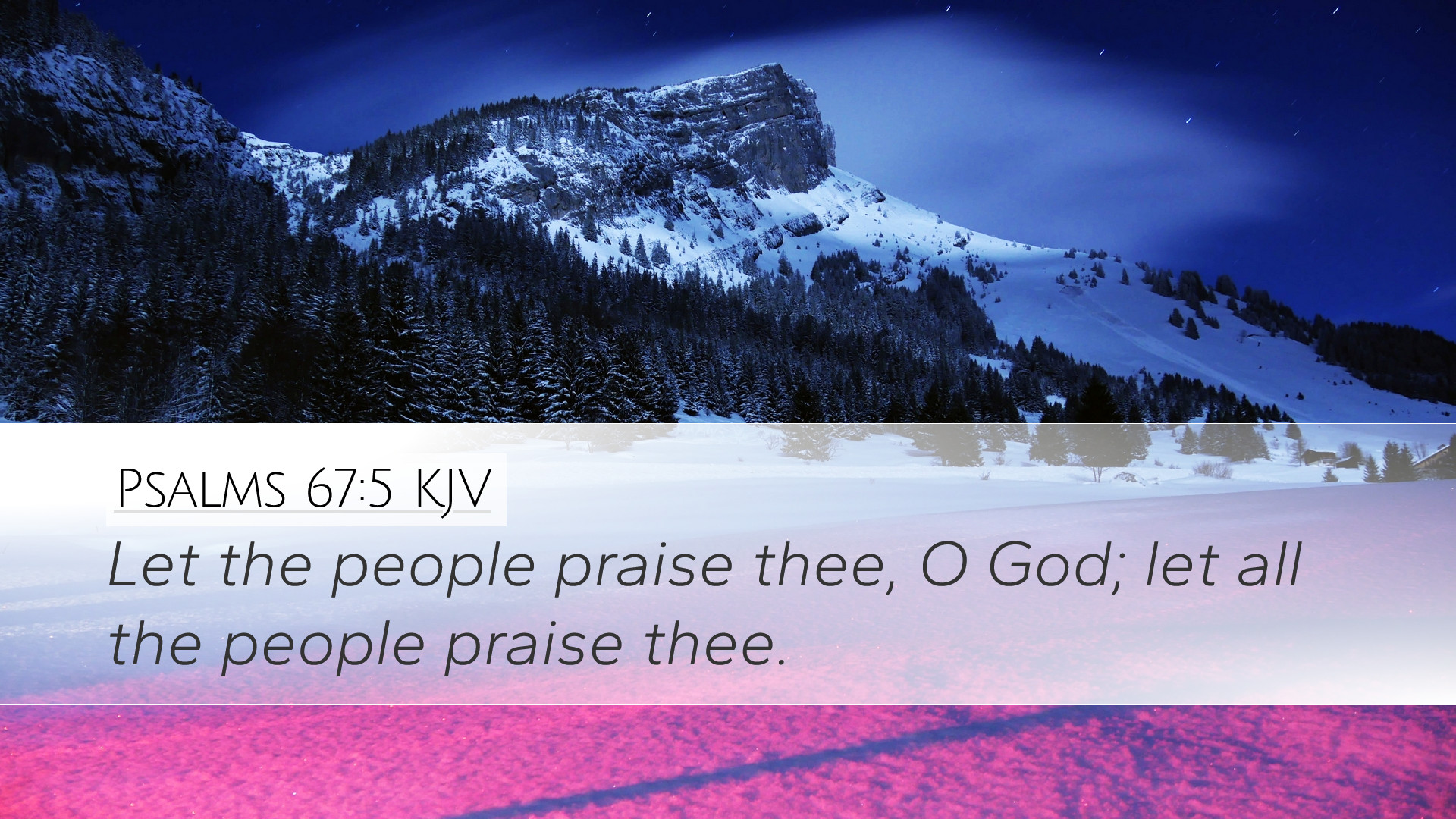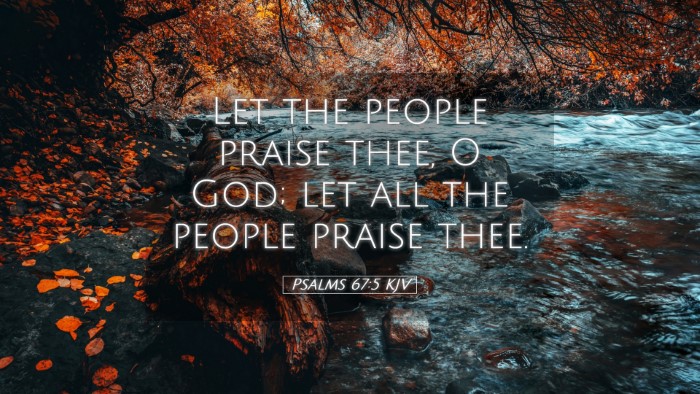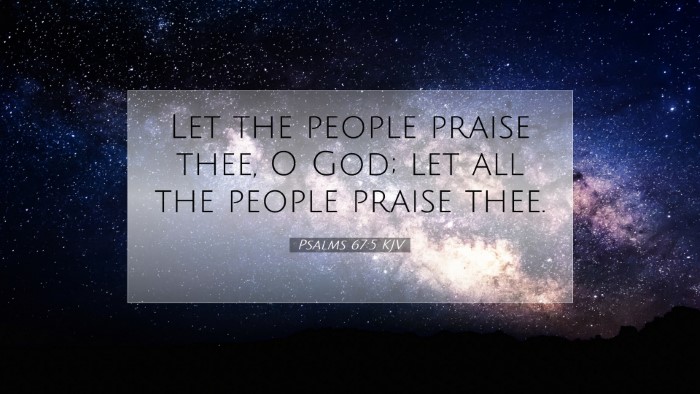Commentary on Psalms 67:5
Verse: "Let the people praise thee, O God; let all the people praise thee."
Introduction
Psalm 67 encapsulates a profound understanding of worship and the universal call to praise God. This psalm is attributed to the sons of Korah and serves as a call for collective praise. It highlights the relationship between God's blessings and the recognition of those blessings through worship.
General Themes and Structure
This psalm can be divided into distinct sections that illustrate God’s design for humanity and the nations. The verses construct a framework where active praising is linked explicitly to the acknowledgment of God's goodness, leading to the joyous celebration of His name among all nations.
Exegesis of Psalms 67:5
In verse 5, the psalmist repeats a significant plea that emphasizes the communal responsibility of praise: "Let the people praise thee, O God; let all the people praise thee." The repetition here serves not just for poetic emphasis but indicates a comprehensive desire for universal worship.
The Call to Praise
Matthew Henry emphasizes the inclusivity of this appeal by stating that the call to praise is not restricted to the Israelites alone but extends to all people. This reflects God's intent to gather worshippers from all backgrounds and cultures.
All People, Regardless of Nation
Albert Barnes comments on the phrase “all the people,” indicating that the psalmist envisions a time when all nations will come together in reverential worship. This augurs a time of unity under God’s sovereign rule, as is further detailed in the subsequent verses.
The Theological Implication
Adam Clarke analyzes the theological implications of worship. He asserts that praise is not only a duty but a natural response to the recognition of God's character and deeds. In praising, believers engage in a reciprocal relationship that acknowledges God's supremacy over creation.
Connecting Praise with Blessing
The entirety of Psalm 67 links the themes of blessing and worship. The assertion that God must be praised leads to an understanding that acknowledgment of God's goodness comes before blessings manifesting in the community.
The Blessings of God
In verse 1, the psalmist requests God's mercy and blessings to be bestowed. Here, we see a clear connection: blessings are to facilitate joy and praise. When the people recognize the abundance of God's provisions, their response is to glorify Him.
A Reflection on Worship Practices
This verse implores the church today to evaluate its worship practices. Matthew Henry urges congregations to foster environments where worship is not merely corporate activity but a lived experience that propels followers to acknowledge God in all aspects of life.
Likewise, Albert Barnes encourages leaders to cultivate a spirit of inclusivity that welcomes individuals from diverse backgrounds to praise together. This unity in worship not only glorifies God but also serves as a testimony to His grace that transcends cultural and ethnic boundaries.
The Role of Community in Worship
The psalm emphasizes the communal nature of worship. Each believer, whether Jew or Gentile, rejoices in God's goodness collectively. The echo of “let the people” underscores the belief that worship transcends individualism; it is a gathering of testimonies, hopes, and praises unified towards the Creator.
A Pastoral Application
The implications of this verse challenge pastors to lead their congregations toward a deeper understanding of communal worship. Adam Clarke notes that worship should arise from communal acknowledgment of divine grace. Pastors are therefore tasked with guiding their congregations in this relational dynamic, fostering community involvement in praise and encouragement.
Conclusion
Psalms 67:5 is a poignant reminder of the importance of collective worship. It eloquently expresses the necessity for God's people to unite in praise, illuminating the path from personal blessing to communal acknowledgment of God's majesty. As we delve into this scripture, it is important for pastors, students, theologians, and scholars to focus not only on the act of worship but on the transformative power that such praise holds in the lives of those who gather.
Final Thoughts
In times of distress, uncertainty, or change, the call for communal praise persists. The clarity of this verse serves as admonition—to remember that our response to God’s blessings should be an overflow of collective adoration.
Let us then, as diverse peoples, come before Him together, allowing our praises to resonate and reflect the unity and glory of God.


